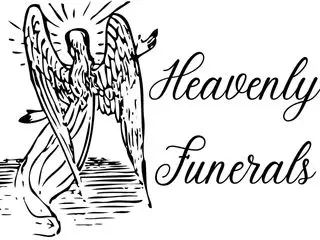Table of Contents
Are you a veteran or know someone who is? A headstone is often a meaningful way to honor the memory of our loved ones after they have passed away – and for veterans, this can be done free of charge!
Read on to find out more about how veterans can receive a headstone honoring their sacrifice.
Yes, headstones for veterans are free. The Department of Veterans Affairs does provide free headstones at no charge to the applicant in most cases.
Although you don’t have to pay for the headstone or marker itself for an eligible veteran, you are required to pay the setting fee to have the marker placed on the grave of the veteran but besides that, there are no costs involved.
Additionally, engraving of service insignia and lettering of name, rank, branch of service, birth date, and death date of the veteran is all included for no charge.
Who Qualifies for Free Veterans Headstones?
A headstone marker is a way to honor and remember the service of veterans. It is also a way for family members to pay tribute to their loved ones who have served in the military.
The United States government (through the VA) provides a headstone free of charge for all eligible veterans, as well as some other individuals who qualify under certain circumstances. Below is an overview of who qualifies for a free veteran headstone:
• All veterans discharged under conditions other than dishonorable
• Eligible spouses, minor children, or dependents of deceased veterans
• Certain civilians killed while serving with U.S. armed forces
• Service members on active duty who die overseas or in a VA hospital
How to Request a Free Veteran Headstone From the Government
If you are a family member of an eligible veteran who passed away, you may be eligible to receive a purchased headstone for free from the Department of Veterans Affairs (VA). To request one, start by contacting your local National Cemetery Administration office.
They will provide information about available options and availability in your area.
The VA provides several types of markers and medallions for eligible veterans including traditional grave markers, flat bronze markers, upright marble or granite headstone markers as well as columbarium niches for cremated remains. The size and material used will depend on the type of cemetery (private cemetery or government) where it is placed.
You can also choose among many emblems to decorate the stone such as religious symbols or military insignias that represent service branches or medals earned by your loved one during their time in service.
Once you decide on what type of marker works best to commemorate the life of your veteran loved one, fill out an Application for Standard Government Headstone or Marker form with all necessary information included along with any other required documents specified by the VA regulations.
You might need to include things like the proof of death certificate and discharge papers if applicable. After submitting everything to them via mail or online make sure to keep track of its status until it’s delivered at no cost within 60 days after the approval process is completed
Cost of Non-Free Military Headstones
Many people assume that a veteran’s headstone or medallion is provided without cost by the U.S. Department of Veterans Affairs (VA). However, this is not always the case.
Depending on certain circumstances, such as when a veteran has already been buried or cremated and no government-issued marker was previously placed at their burial site, veterans may be required to pay for their own headstone.
Typically, if there are no restrictions from a cemetery or religious organization regarding what type of memorial can be installed at a gravesite and it meets VA standards for design and inscription, then the VA will provide up to two standard granite markers free of charge – one flat marker for ground placement and one upright marker for above ground installation – with applicable dates engraved in them.
However, if someone wants something other than these standard designs or wants additional information inscribed onto their eligible veteran’s memorial stone beyond simply listing basic details like name and military branch affiliation (such as religion or unit insignia), then they must bear the cost themselves since these items fall outside of what is covered by the VA program.
Rules and Regulations for Private Cemetery Placement of Veterans’ Headstones
Rules and regulations for the placement of a veteran’s headstone must be considered when determining whether or not a veteran’s headstone is free. The U.S. Department of Veterans Affairs (VA) outlines specific rules in regard to purchasing, shipping, and placing a veteran’s headstone as part of their memorial program.
The VA provides information on the types of markers that are available for purchase, including traditional stone markers or metal placards, and flat marker stones. The majority of these markers may be purchased at any national cemetery with approved suppliers listed on the VA website.
In addition, some states require special permission to place a veteran’s marker on private property such as cemeteries outside of a national cemetery or church; this is done by submitting an application through the State Cemetery Board office responsible for approving such requests.
All veteran headstones must also meet federal size requirements set by the VA which includes both standard sizes and custom inscribed ones depending upon the type chosen. If a non-standard-sized one is desired, then extra charges may apply due to additional labor costs associated with cutting it down to size before installation can occur.
Lastly, there are other miscellaneous expenses such as setting fees charged by the local cemetery. As long as all regulations related to purchasing and placement have been met, then yes, much like other military benefits, most government-issued gravemarkers are indeed free upfront.
How To Learn More About Other Veteran Benefits
Alright, so you want to learn more about other veteran benefits? Well, let me tell you, it’s not as easy as just Googling it and having all the answers pop up in front of you. No, no, no. It’s a whole process.
But don’t worry, I’ve got your back.
First things first, if you are a veteran (or active duty service member) you are going to want to visit the Department of Veterans Affairs (VA) website. I know, I know, government websites aren’t exactly known for being user-friendly, but stick with me here.
Once you’re on the VA website, you’ll want to navigate to the “Benefits” page. From there, you’ll see a plethora of information on different benefits available to veterans, such as education and training, health care, and home loans.
Next, you’ll want to give the VA a call. Yes, I know, talking on the phone is so last century, but trust me, it’s worth it to get these issues figured out.
The VA has a toll-free number (1 (800) 698-2411) for veterans to call and ask about any benefits they might be missing out on. They also have a call center specifically for veterans who are deaf or hard of hearing.
So don’t be shy, pick up the phone and give them a ring.
If you’re the type of person who prefers to do things in person, you can always visit your local VA Regional Office. These agencies have trained professionals who can help you understand the benefits available to you and assist you in applying for them.
Just make sure to bring all the necessary documents with you, otherwise, you’ll be making multiple trips.
Other Veteran Burial Benefits
First things first, did you know that veterans are eligible for a free burial in a national cemetery? Yeah, that’s right, you can be buried alongside your brothers and sisters in arms, and not have to worry about the cost.
But wait, there’s more! Veterans are also eligible for a burial flag. That’s right, a flag that’s been flown over the Capitol building in Washington, D.C. Just imagine, your final resting place is adorned with a flag that’s been flown over the seat of our government.
And if you’re a disabled veteran, you may be eligible for a plot or interment allowance to help cover the cost of burial and funeral expenses.
I know, I know, you’re probably thinking “well, this all sounds great and all, but what about my spouse and dependents?” Don’t worry, they’re covered too. Spouses and dependents of veterans are also eligible for burial in a national cemetery, and may also be eligible for a plot or interment allowance as well.
So overall, the VA provides many different burial benefits that you should check into.



Leave a Reply